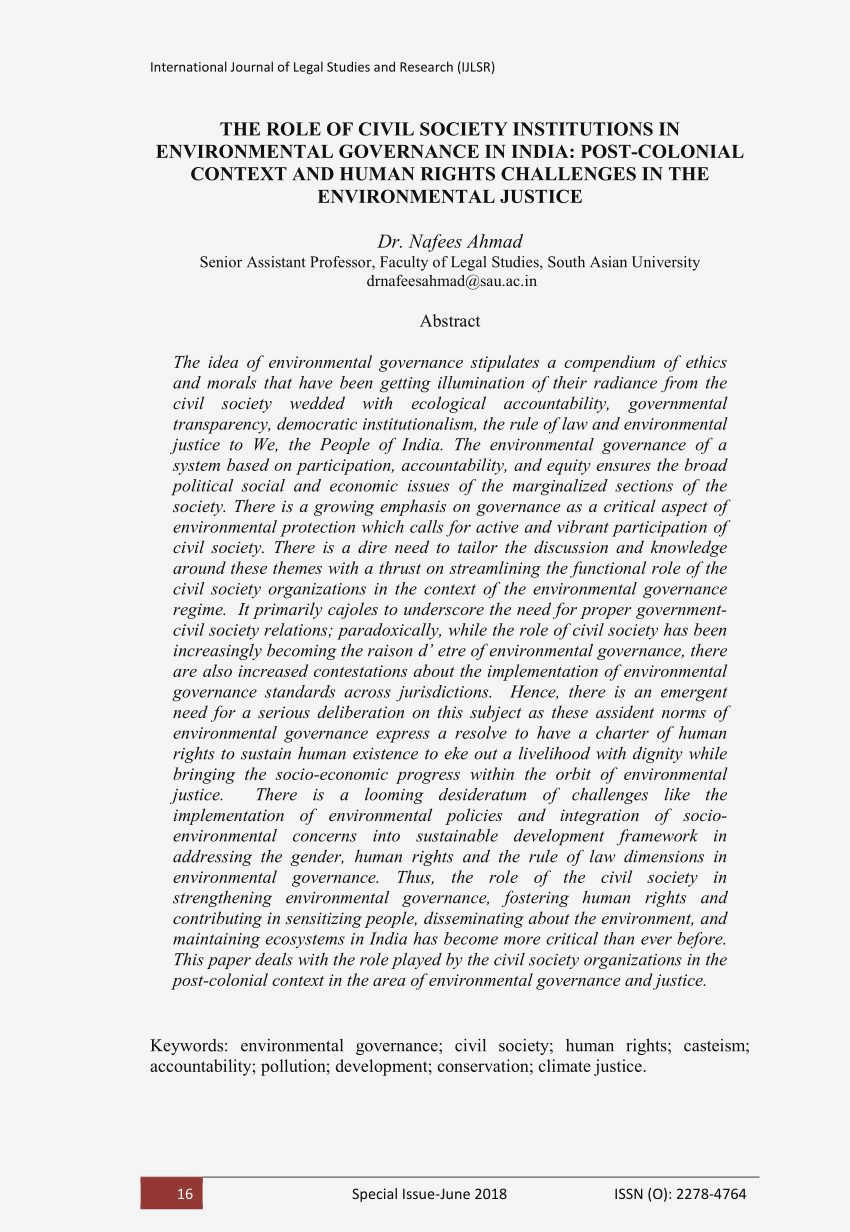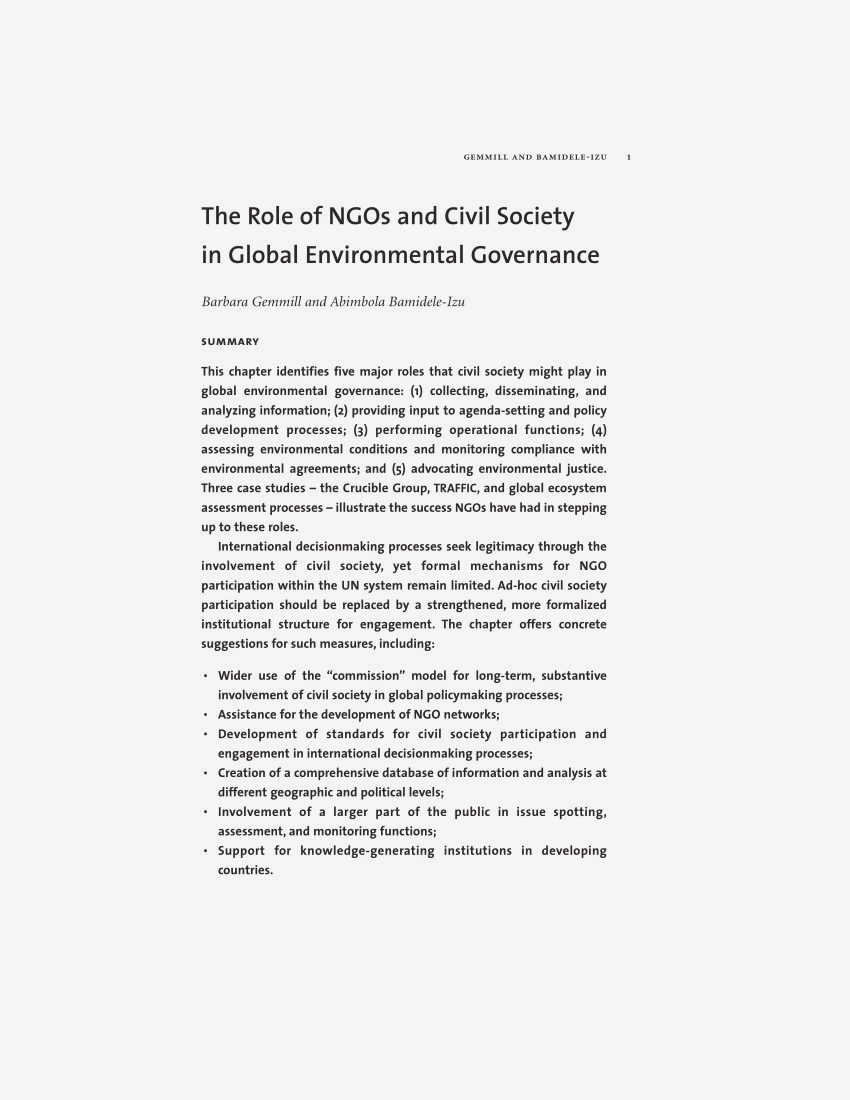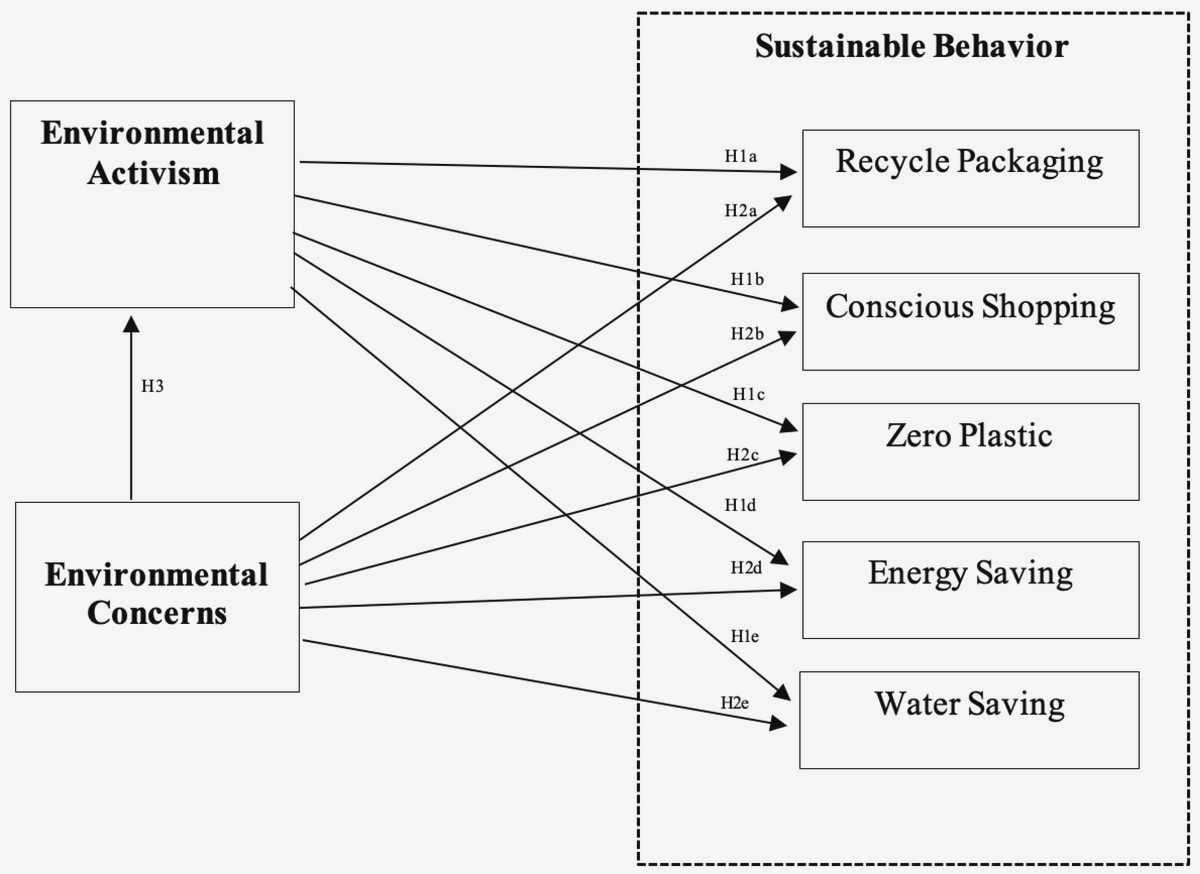Environmental activism plays a crucial role in the development and maintenance of a strong civil society. Civil society refers to the society formed by the individuals and organizations that are not part of the government or business sectors but are engaged in various social, cultural, and political activities. Environmental activism focuses on advocating for the protection and preservation of the environment, including natural resources, ecosystems, and biodiversity. By addressing pressing environmental issues, activists contribute to the overall well-being and sustainability of their communities.
One of the key benefits of environmental activism is that it fosters public participation and raises awareness about environmental issues. Activists engage with local communities, organize protests, and conduct educational campaigns to inform and educate people about the environmental challenges their society is facing. Through these efforts, they encourage individuals to become active citizens, empowering them to voice their concerns, and take action to protect the environment. This increased engagement and awareness lead to a more informed and environmentally conscious civil society.
Environmental activism also plays a vital role in holding governments and corporations accountable for their actions and policies. Activists often challenge decisions that harm the environment or fail to prioritize ecological sustainability. By highlighting the negative consequences of such actions, they put pressure on decision-makers to reconsider and adopt more environmentally friendly approaches. This accountability ensures that governments and corporations take environmental concerns into consideration and promotes the implementation of sustainable policies.
In addition to public awareness and accountability, environmental activism also contributes to the development of a strong civil society by fostering cooperation and collaboration among different stakeholders. Activists often work in partnership with other community organizations, non-profit groups, and researchers to address complex environmental challenges. Through these collaborations, individuals and organizations learn from one another, pooling their knowledge and resources to develop innovative solutions and strategies. This cooperation builds trust and strengthens social networks, laying the foundation for a more cohesive and resilient civil society.
The Role of Environmental Activism
Environmental activism plays a crucial role in building a strong civil society. This form of activism is aimed at promoting and protecting our environment, addressing issues such as climate change, deforestation, pollution, and biodiversity loss. By raising awareness and advocating for change, environmental activists contribute to the development of sustainable policies and practices that ensure a healthier planet for current and future generations.
Raising Awareness
One of the key roles of environmental activism is to raise awareness about the pressing environmental issues that our society faces. Activists organize demonstrations, protests, and campaigns to bring attention to these issues and encourage public engagement. Through various channels such as social media, public speeches, and educational events, they educate the public about the importance of environmental conservation and inspire individuals to take action.
Advocating for Change
Another important role of environmental activism is to advocate for change at various levels, including local, national, and international. Activists work towards influencing policies and regulations that promote sustainable practices and protect the environment. They participate in public hearings, lobbying efforts, and legal challenges to ensure that governments and corporations are held accountable for their actions. By advocating for change, environmental activists strive to create a more environmentally friendly and equitable society.
Fostering Collaboration
Environmental activism also plays a vital role in fostering collaboration among different stakeholders. Activists often collaborate with scientists, policymakers, businesses, and communities to find sustainable solutions to environmental challenges. Through partnerships and joint initiatives, they develop innovative strategies and projects that address issues such as renewable energy, waste management, and conservation efforts. By working together, these diverse groups can create a stronger civil society that prioritizes environmental well-being.
Inspiring Individual Action
One of the most significant impacts of environmental activism is its ability to inspire individual action. Activists motivate people to make environmentally conscious choices in their daily lives, such as reducing waste, conserving energy, and supporting eco-friendly businesses. By empowering individuals to take responsibility for their actions, environmental activism encourages a collective effort towards positive change. This individual action, when multiplied, can have a significant impact on building a strong civil society with a focus on environmental sustainability.
In conclusion, environmental activism plays a central role in building a strong civil society. Through raising awareness, advocating for change, fostering collaboration, and inspiring individual action, activists contribute to creating a more sustainable and environmentally conscious society. Their efforts are instrumental in protecting our planet and ensuring a better future for all living beings.
Raising Awareness
Raising awareness about environmental issues is a critical component of environmental activism. By informing the public about the state of the environment, activists can inspire and mobilize individuals to take action. This can be done through various means, such as organizing educational workshops and conferences, distributing informational materials, and utilizing social media platforms.
Education and Workshops
One effective way to raise awareness is through educational workshops and seminars. These events provide an opportunity for activists to share their knowledge and expertise on environmental issues. By presenting scientific research, case studies, and practical solutions, activists can help individuals better understand the impact of human activities on the environment.
During these workshops, activists can also provide information on sustainable practices and eco-friendly alternatives. They can demonstrate how small changes in daily habits, such as recycling, reducing waste, and conserving energy, can make a significant difference in mitigating environmental degradation.
Informational Materials
In addition to workshops, activists can create and distribute informational materials to reach a wider audience. These materials can take the form of brochures, pamphlets, and infographics, which provide concise and visually appealing information about environmental issues.
Through these materials, activists can highlight the consequences of environmental degradation and emphasize the importance of taking action. They can also provide practical tips and suggestions on how individuals can contribute to environmental conservation in their daily lives, promoting a sense of individual responsibility.
Moreover, activists can collaborate with local schools and educational institutions to incorporate environmental education into the curriculum. By integrating environmental topics into various subjects, students can develop a deeper understanding of the environment and its importance, fostering a future generation of informed and environmentally conscious individuals.
Raising awareness about environmental issues is an essential step in building a strong civil society. By educating and informing individuals, activists can empower them to take action and advocate for positive change. Together, with increased awareness and collective efforts, we can create a more sustainable and environmentally friendly world.
Creating Change
Empowering Individuals
Environmental activism plays a critical role in creating change by empowering individuals to take action and make a difference. By raising awareness about environmental issues, activists help people understand the impact of their actions on the planet and the importance of preserving and protecting the environment.

Through grassroots movements and campaigns, activists mobilize communities to join in collective efforts to address environmental challenges. They provide individuals with the knowledge, tools, and resources they need to become active participants in creating a sustainable future.
Influencing Policy
Environmental activists have the power to influence policy and bring about legislative change. They work to ensure that environmental concerns are addressed and prioritized at the local, national, and international levels.

Through lobbying, advocacy, and public pressure, activists can shape policies that promote environmental protection, conservation, and sustainable development. They raise awareness about the need for stronger regulations, support the implementation of eco-friendly practices, and demand accountability from governments and corporations.
Catalyzing Innovation
Environmental activism also plays a crucial role in catalyzing innovation and driving technological advancements. By highlighting the pressing need for alternative solutions to environmental problems, activists stimulate research, development, and investment in green technologies.

Activists challenge the status quo and push for the adoption of cleaner and more sustainable processes in various industries. They promote renewable energy, waste reduction, eco-friendly transportation, and other innovative solutions that contribute to a greener future.
Holding Governments Accountable
Environmental activism plays a crucial role in holding governments accountable for their actions and policies. Activists often act as a check and balance on the decisions and actions taken by governments, ensuring that they are in line with the best interests of the environment and the people.
One way environmental activists hold governments accountable is by raising public awareness about environmental issues and advocating for change. Through protests, campaigns, and media coverage, activists bring attention to government actions that may be detrimental to the environment, sparking public debate and concern.
Environmental activists also use their expertise and knowledge to challenge government decisions legally. They may file lawsuits or engage in legal battles to stop harmful projects, such as the construction of polluting industries or the destruction of protected natural areas. By taking legal action, activists can require governments to justify their decisions and potentially reverse them if they are found to be unlawful or against environmental regulations.
Another important way activists hold governments accountable is through lobbying and advocacy. They work to influence policy-making processes, providing input and recommendations to government officials. By presenting scientific evidence, proposing alternative solutions, and mobilizing public support, activists can push for more environmentally friendly policies and regulations.
Furthermore, international environmental activism also plays a crucial role in holding governments accountable on a global scale. Organizations and activists work together to monitor and assess the environmental actions of governments around the world. Through international forums, treaties, and agreements, they put pressure on governments to fulfill their commitments and take action to protect the environment.

In summary, environmental activism plays a vital role in holding governments accountable for their environmental actions and policies. From raising public awareness to taking legal action and advocating for change, activists ensure that governments are held to account and that the best interests of the environment and the people are protected.
Mobilizing Communities
Environmental activism plays a crucial role in mobilizing communities towards a common goal of building a strong civil society. By raising awareness about environmental issues and advocating for sustainable practices, activists inspire individuals to take action and make a positive impact on their communities.
Education and Awareness: Environmental activists organize workshops, seminars, and educational campaigns to inform communities about the importance of environmental conservation. They emphasize the interconnectedness of environmental issues, such as climate change, pollution, and deforestation, with human health, economy, and overall well-being. By highlighting the consequences of environmental degradation and the benefits of adopting sustainable practices, activists empower individuals to make informed choices and actively participate in creating a greener future.
Community Engagement: Environmental activism encourages community engagement by providing platforms for discussion, collaboration, and collective action. Activists bring together individuals from different backgrounds, including students, professionals, and policymakers, to share their experiences, skills, and ideas. By fostering a sense of belonging and collective responsibility, grassroots movements gain momentum and achieve positive change. Activists also facilitate community-led initiatives, such as tree planting drives, waste management projects, and clean-up campaigns, to address local environmental challenges and improve the quality of life for all.
Advocacy and Policy Change: Environmental activists play a vital role in advocating for policy change at the local, national, and international levels. Through research, lobbying, and public campaigns, they raise awareness about the need for strong environmental laws and regulations. By pressuring governments and corporations to adopt sustainable practices, activists ensure that environmental concerns are prioritized and integrated into decision-making processes. Their efforts contribute to the development of comprehensive environmental policies, the enforcement of environmental laws, and the protection of natural resources for future generations.
Protecting Endangered Species
Endangered species are plants or animals that are at risk of becoming extinct. These species play a crucial role in maintaining the balance of ecosystems and preserving biodiversity. Protecting them is essential for the well-being of our planet and future generations.
Importance of Protecting Endangered Species
Endangered species are often indicators of environmental health. Their presence or absence can reflect the overall condition of an ecosystem. By protecting these species, we can ensure the conservation of their habitats and the preservation of the delicate ecosystems they are a part of.
Moreover, endangered species often have unique genetic traits or adaptations that make them valuable for scientific research and medical advancements. By safeguarding these species, we have the opportunity to discover new medicines, technologies, and solutions to various challenges.
Threats to Endangered Species
There are several factors contributing to the decline of endangered species. Habitat destruction, due to urbanization, deforestation, and land development, is one of the primary threats. Pollution, including air, water, and soil pollution, also poses a severe risk.
Additionally, illegal poaching and hunting, as well as the illegal wildlife trade, drive many species to the brink of extinction. Climate change is another significant threat, causing shifts in temperature, altered rainfall patterns, and the destruction of habitats.
Role of Environmental Activism
Environmental activism plays a crucial role in protecting endangered species. Activists raise awareness about the importance of conservation and the need to protect these vulnerable species. They advocate for stronger environmental laws and regulations, pushing for the enforcement of wildlife protection measures.
Environmental activists also work to address the root causes of habitat destruction and pollution. They promote sustainable practices, such as habitat restoration, conservation efforts, and the use of eco-friendly technologies. By mobilizing communities and governments, activists can make a significant impact in safeguarding endangered species and their habitats.
Collaboration and Education
Protecting endangered species requires collaboration among various stakeholders, including governments, non-governmental organizations, scientists, and local communities. It is crucial to promote education and awareness programs that highlight the importance of biodiversity and the conservation of endangered species.
By educating people about these issues, we can foster a sense of responsibility and inspire individuals to become environmental stewards. Everyone has a role to play in protecting endangered species, whether it is through supporting local conservation initiatives, reducing our carbon footprint, or advocating for stronger environmental policies.
Preserving Natural Resources
Natural resources are essential for the well-being of our planet and its inhabitants. They provide us with food, water, energy, and materials for shelter. However, our current consumption patterns are depleting these resources at an alarming rate, leading to environmental degradation and loss of biodiversity.
Conservation efforts play a vital role in preserving natural resources. Environmental activists work tirelessly to raise awareness about the importance of protecting these resources and advocate for sustainable practices.
Biodiversity preservation
One crucial aspect of preserving natural resources is maintaining biodiversity. Biodiversity refers to the variety of life on Earth, including plants, animals, and microorganisms. It is essential for the functioning of ecosystems and provides numerous ecological services.
Environmental activists work towards protecting biodiversity by:
- Supporting the establishment and management of protected areas
- Advocating for the conservation of endangered species
- Promoting sustainable agriculture practices to prevent habitat destruction
- Encouraging the preservation of natural habitats
Sustainable resource management
Sustainable resource management is another critical aspect of preserving natural resources. It involves using resources in a way that meets the needs of the present generation without compromising the ability of future generations to meet their needs.
Environmental activists contribute to sustainable resource management by:
- Promoting renewable energy sources, such as solar and wind power
- Advocating for responsible water usage and conservation
- Supporting environmentally friendly practices in industries, such as waste reduction and recycling
- Encouraging sustainable forestry practices to prevent deforestation
In conclusion, preserving natural resources is crucial for the survival and well-being of our planet. By actively participating in conservation efforts and promoting sustainable practices, environmental activists play a vital role in building a strong civil society that values and protects our natural heritage.
Promoting Sustainable Practices
Environmental activism plays a vital role in promoting sustainable practices that protect our planet and ensure the well-being of future generations. By raising awareness and advocating for change, environmental activists aim to create a society that values and implements sustainable practices in all aspects of life.
Raising Awareness
One of the key ways environmental activists promote sustainable practices is by raising awareness about the importance of environmental conservation. They educate the public about the detrimental effects of practices such as deforestation, pollution, and overconsumption, highlighting the need for alternative and sustainable solutions.
Through campaigns, demonstrations, and online platforms, activists engage with individuals and communities, informing them about the benefits of sustainable practices and the positive impact they can have on the environment. By providing facts, statistics, and real-life examples, they enable people to make informed choices and take action to protect the environment.
Advocating for Change
Environmental activists also play a crucial role in advocating for change at various levels, including government policies, business practices, and individual behaviors. They work to influence decision-makers and push for the implementation of regulations and measures that support sustainable practices.
Through lobbying, petitions, and public campaigns, activists aim to hold governments and corporations accountable for their actions, urging them to adopt sustainable policies and practices. Additionally, they encourage individuals to make sustainable choices in their daily lives, such as reducing waste, conserving energy, and supporting eco-friendly businesses.
By advocating for change, environmental activists help create a societal shift towards sustainable practices, empowering individuals to take responsibility for the environmental impact of their actions and encouraging institutions to prioritize sustainability as a core value.
Advocating for Environmental Justice
Environmental justice is a critical aspect of environmental activism, as it focuses on the equitable distribution of environmental benefits and burdens among all communities, regardless of race, class, or income. Advocating for environmental justice involves addressing the disproportionate impacts of environmental degradation on marginalized communities and working towards empowering these communities to be active participants in decision-making processes.
One key aspect of advocating for environmental justice is raising awareness about the environmental injustices that exist in our society. This can be done through educational campaigns, community organizing, and media outreach. By highlighting the ways in which certain communities bear a greater burden of pollution or lack access to clean air, water, and green spaces, activists can mobilize public support and put pressure on policymakers to take action.
In addition to raising awareness, environmental justice advocates also work towards policy change that will address the systemic root causes of environmental injustices. This involves advocating for stronger environmental regulations, pushing for the enforcement of existing laws, and promoting policies that prioritize the needs and rights of affected communities. It may also involve challenging discriminatory practices and policies that perpetuate environmental injustices.
Advocating for environmental justice often requires collaboration and coalition-building. By forming partnerships with other social justice organizations, such as those working on racial and economic justice, activists can amplify their voices and create a more powerful movement for change. This collaboration can also help in making connections between different forms of oppression and environmental injustices, leading to a more holistic understanding of the challenges we face.
Ultimately, advocating for environmental justice is about fighting for a world in which access to clean air, water, and a healthy environment is a basic human right. It is about challenging the environmental inequalities that exist in our society and working towards building a more just and sustainable future for all.
Encouraging Corporate Responsibility
Environmental activism plays a crucial role in encouraging corporate responsibility. By raising awareness about the impact of business practices on the environment, activists are able to hold corporations accountable for their actions. They push for sustainable and ethical practices and demand transparency from companies in regards to their environmental impact.
One way environmental activists encourage corporate responsibility is by advocating for stronger regulations and policies. They work to influence lawmakers and policymakers to implement stricter rules and regulations on businesses, ensuring that they are held to higher environmental standards. This can include measures such as imposing fines or penalties for companies that do not meet certain environmental criteria.
Environmental activists also work to engage with corporations directly, pushing for changes within their operations and supply chains. They may advocate for the adoption of renewable energy sources or the reduction of waste and pollution. By organizing consumer boycotts or campaigns, activists can put pressure on companies to prioritize environmental responsibility and make necessary changes.
Additionally, activists often collaborate with NGOs and other organizations to promote corporate responsibility. They may partner with environmental groups that focus on corporate sustainability, allowing for a wider reach and a stronger impact. By joining forces, these organizations can leverage their collective resources and expertise to achieve greater change.
The role of environmental activism in encouraging corporate responsibility cannot be underestimated. By holding corporations accountable for their actions and pushing for positive change, activists help build a stronger civil society that prioritizes the protection of the environment and promotes sustainable practices.
Strengthening Democracy
Environmental activism plays a vital role in strengthening democracy by promoting citizen participation and government accountability. By advocating for environmental issues, activists raise awareness among the public and encourage individuals to engage in the democratic process. They highlight the importance of protecting the environment and advocate for policies that prioritize sustainability and preservation. In doing so, they empower citizens to take action and hold their governments responsible for their decisions and actions.
Increased Citizen Engagement
Environmental activism fosters increased citizen engagement, which is essential for the functioning of a strong democracy. Activists organize public demonstrations, conduct educational campaigns, and provide platforms for discussions and debates on environmental issues. Through these activities, they encourage individuals to become active participants in shaping their communities and influencing policies. By involving citizens in decision-making processes, environmental activists help create a more inclusive and representative democracy.
Government Accountability
Environmental activism also plays a crucial role in holding governments accountable for their actions and policies. Activists monitor the actions of governments and policy-makers, scrutinizing their environmental decisions and demanding transparency. By raising awareness about potential environmental threats and the consequences of certain policies, activists ensure that governments are accountable to the public. Through their advocacy efforts, they push for policies that prioritize environmental protection and sustainability, creating a more accountable and responsible government.
In conclusion, environmental activism is instrumental in strengthening democracy by promoting citizen engagement and government accountability. Through their advocacy efforts, activists empower individuals to participate in the democratic process and hold their governments responsible for their actions. By prioritizing environmental issues, they contribute to the development of a more sustainable and inclusive society.





